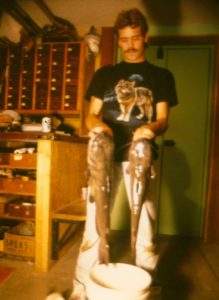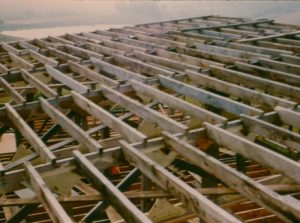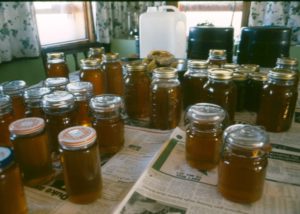The Mandarin Question
In the era before radio, TV, and e-screens, people provided most of their own entertainment. The Lewis and Clark expedition carried a fiddle and when camping near friendly natives the visitors would demonstrate their dance routines, such as square dancing and reels, and their hosts would reciprocate with a scalp dance and other classics. Wagon trains and flatboats moving the white population ever westward included violins, flutes, and other smallish instruments. After the railroad came through, even some Nebraska soddies had a piano.
One of their entertainments back then was debate, and a favorite was to begin with The Mandarin Question. The core of this was to suppose that you could acquire a large sum of money if a Chinese mandarin were to die at your command. Would you do it??? Mandarins were a symbol of someone far away who you would never know and who otherwise had no role in your life. Most people would initially decline the offer, but then the offer would keep shifting to become more attractive. What if the old mandarin were going to die tomorrow anyway? What if you could save your own child’s life by sacrificing the mandarin? What if…? After everyone had opportunity to name their price, then the question would shift to their actual reality, which at that time was the Indians being cleared out to make way for the white wave sloshing across the landscape.
A century later, Alfred Hitchcock picked up the Question again with one of his movies. In this flick, a sorta sinister-looking stranger appears at a woman’s door, hands her a little locked box and a key, and tells her that if she unlocks the box she will receive a large sum of money, but someone she doesn’t know will die. And the Mandarin Question plays itself out to an unexpected ending.

Catfish from home pond.

My house under construction 1976. Main trusses are made of modern scrap: gray purlins are oak barn rafters.
Today we all play out the Question in an environmental format. This time some of the Mandarins are our children, grandchildren, and more distant descendants. For example, the US has been using nuclear electricity and making atomic weapons for more than a half century, and still has no facilities to deal with nuclear waste. And so we bequeath to our posterity a bunch of places leaking radionuclides like plutonium with its half-life of 24,000 years, and radioactive iodine with its affinity for the human thyroid. And this electricity is not as cheap as your electric bill might have you believe, because government and industry have colluded long enough that almost all of the real dollar costs have either been hidden away in your taxes or passed on to future generations.

A honey harvest from our yard.
Or consider the grim, marginal, and often brief lives of the millions who produce our fresh fruits and vegetables, around the world, through all the seasons. Whether these Mandarins live or die doesn’t concern us, we don’t even know who they are.
The Mandarin Question underlies my lifestyle and I’m trying to hold the distant damage to a minimum with a recycled house, solar and wood heat, gardens, drive to town only once per day or not at all, adopt children, plant trees, build wetlands, recreate prairie, teaching school children, and sharing conservation notes on Bur Oak Land Trust’s blog.


